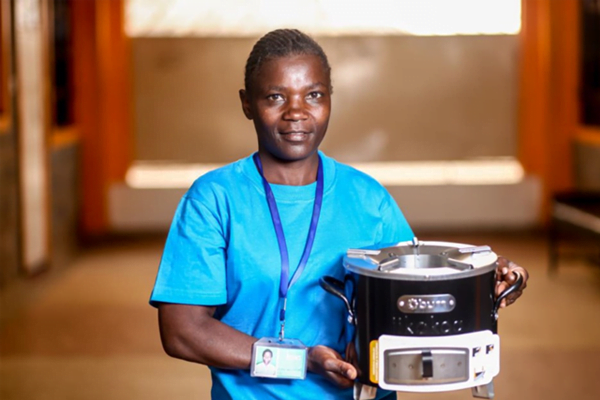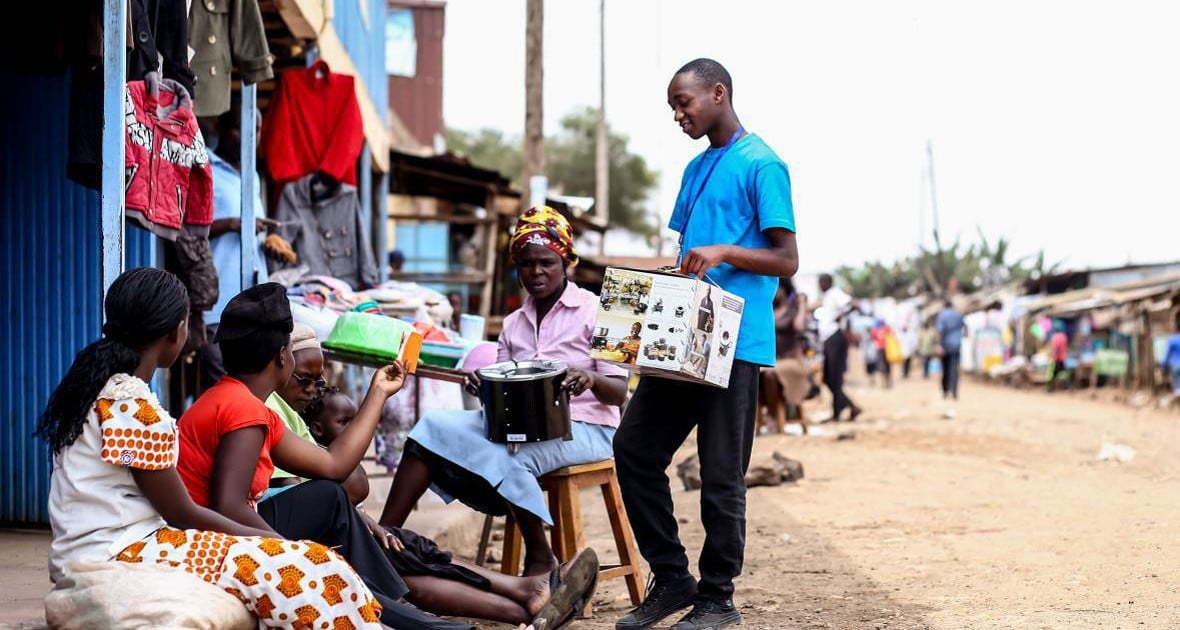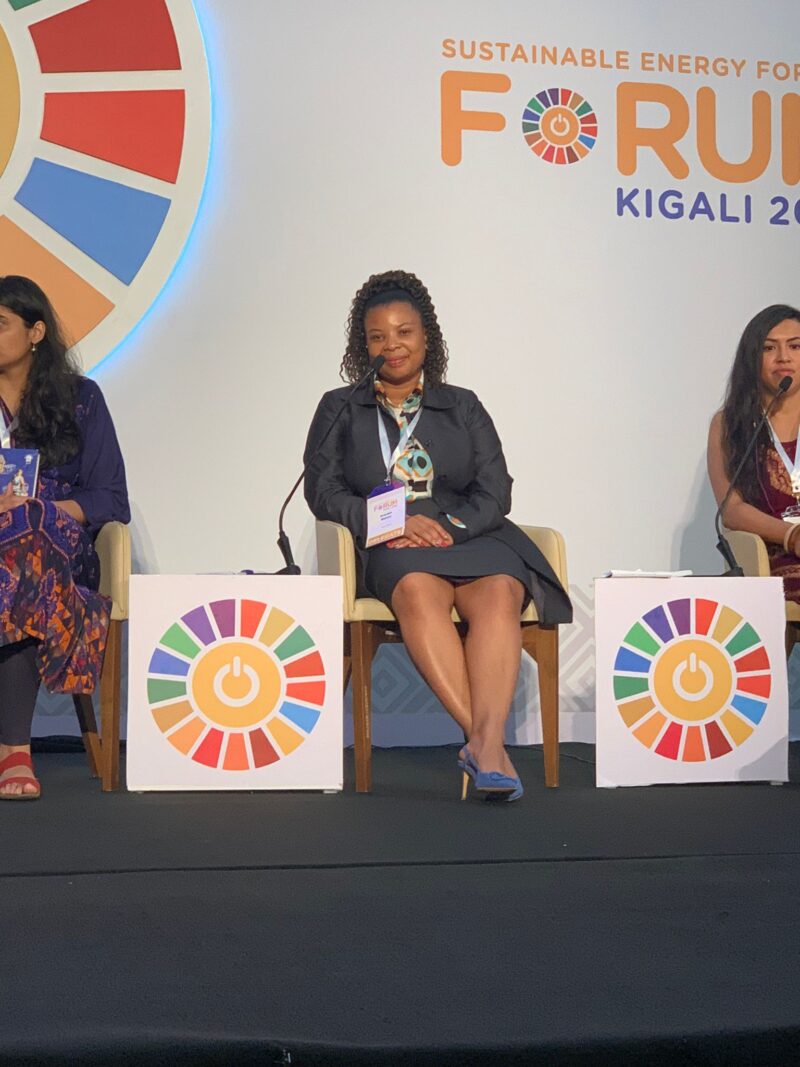
iSmart Kenya indeed demonstrated its potential in the peri-urban town of Limuru by not only exceeding the initial project targets but also completing the project several months ahead of schedule. Through their distribution network of trained sales agents, iSmart brought a total of 5,273 clean cookstoves to low-income families living in urban slums, as well as peri-urban and rural areas – and accomplished this in just eleven months.
These clean cookstoves give households access to clean energy and have essential health, economic and environmental benefits for families at the base of the pyramid. The project received 106,673 Euros of EEP funding with the aim to demonstrate iSmart’s potential to expand operations into new areas and markets. The EEP funding enabled iSmart to expand its urban sales distribution and open its first location outside of Nairobi, bringing their products and services to informal settlements in the peri-urban town of Limuru just outside of Nairobi.
Over the duration of the project, iSmart set goals to create sales agent jobs for 150 youth and women and distribute 5,000 clean cookstoves to base of the pyramid consumers in Kenya. The goal for job creation was significantly exceeded with 233 youth and women employed as sales agents through the project, and the sales peaked to over a thousand cookstoves sold in both August and September 2015.
Improved access to clean energy
The 5,273 households reached through the project now own clean energy products that can improve the quality of life in many ways. Cookstoves reduce charcoal consumption and toxic smoke emissions, and are therefore a good investment for health, economic and environmental reasons. Clean cookstoves are estimated to reduce charcoal consumption by 50 per cent, saving the low-income customers money that can be spent on other critical needs such a food, housing, or school fees.
Environmental Stewardship
Through increased adoption of clean cookstoves, iSmart impacts the environment by reducing charcoal consumption at the base of the pyramid. This means fewer trees need to be cut down to produce charcoal and less toxic smoke is emitted during combustion, ultimately mitigating climate change and decelerating deforestation. With each of the cookstoves reducing 2.6 tonnes of carbon dioxide annually, the reduction totals to 13,710 tonnes of carbon dioxide each year and a total savings of 68,550 tonnes of carbon dioxide over the five-year lifetime of the cookstoves. This is equivalent to taking over 14,000 cars off of the road for one year.

Vocational Training and Job Creation
iSmart’s model is designed to create job opportunities for youth and women, regardless of education or experience, so they can work their way out of poverty and realize their potential. Compensation is a combination of commission-based payment at the end of the month and weekly team-based bonuses. This structure provides incentives for both learning to budget monthly earnings with expenditures, as well as incentives to increase sales and collaborative teamwork.
Through the project, iSmart trained 351 youth and women and employed 233 youth and women as sales agents. Sales agents earn an average income that is above the international poverty line of $2 per day, and some earn up to $10 per day. The sales agents also save 10 per cent of their income that can be used for unexpected emergencies or future investments in property, education, or entrepreneurship. The experience and skills sales agents gain through working in a formal environment can be leveraged for a lifetime of gainful employment.
Adaptation to New Markets
For expanding operations outside of the urban areas, iSmart needed to adapt the distribution model slightly from what had worked in Nairobi. Noting that the door-to-door selling was a challenge in less densely populated Limuru, iSmart began to utilize marketing through events and at local markets where larger groups of people congregate and come to purchase products.
iSmart also noted that the external factors have a more significant effect in the rural areas than in an urban environment. As the sales agents walk around outdoors, the rainy season can reduce the sales drastically. To go forward, seasonal variations are considered in sales projections, and incentives developed for the sales agents to stay motivated through the different seasons.
Replication Possibilities of the Successful Demonstration
With the proven success of iSmart’s model in a small town of Limuru, iSmart plans to continue expansion beyond Nairobi and Kiambu counties, both for urban and rural areas. And, the expansion plans are also not limited to Kenya. As the iSmart team concludes: “We expect that the growth we have been able to achieve through our partnership with the Energy and Environment Partnership will lead to large-scale investment in the next few years that will enable our growth and replication throughout Kenya and eventually East Africa”.
Marketing for the clean energy transition
Profile of Precious Vuma, Business Development and Marketing Manager at Powerlive ...
Leading by her values
Profile of Rethabile Mafura, Country Director Lesotho, African Clean Energy - Lesotho...
Using innovation to provide access to clean energy
Profile of Felix Boldt, Founder and CEO of Solarworx - Zambia...





